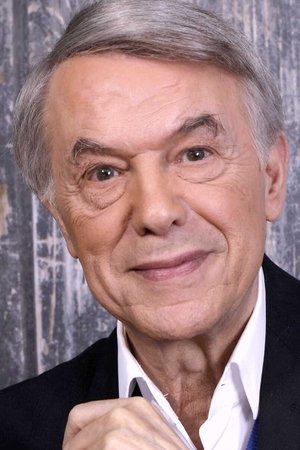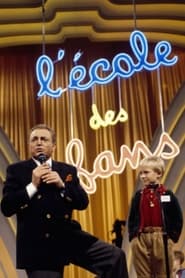
Salvatore Adamo
Salvatore Adamo (November 1, 1943) is a Belgian-Italian musician, singer and composer, who is known for his romantic ballads. Adamo was born in Comiso, Sicily, Italy, and has lived in Belgium since the age of three, which is why he has dual citizenship. By the second half of the sixties, Adamo had become the world's second best-selling musician after The Beatles. Through his career, he sold more than 80 million albums and 20 million singles worldwide, making him the best-selling Belgian artist of all time, and one of the most commercially successful musicians in the world. He first gained popularity throughout Europe and later in the Middle East, Latin America, Japan, and the United States. Adamo mainly performs in French but has also sung in Italian, Dutch, English, German, Spanish, Japanese, and Turkish. "Tombe la neige", "La nuit", "Vous permettez, Monsieur?", "Inch'Allah" and "Petit bonheur" remain his best known songs. Since 2001 Adamo holds the Belgian noble title of Ridder, similar to the English title of "Knight". He became an officer of the French Légion d'honneur in 2005 and a Commander in the Order of the Star of Italy in 2015. He was also awarded the Order of the Rising Sun in 2016 for his influence on Japanese popular music. The father of Adamo, Antonio, emigrated to Belgium in February 1947 to work as a colliery worker in the mines of Marcinelle. Four months later his wife, Concetta, and their son, Salvatore, joined him in the town of Ghlin, before moving to Jemappes (Mons). In 1956, Salvatore was bedridden for a year with meningitis. Salvatore's parents did not want their son to become a miner, so he went to a Catholic school run by the Frères des Ecoles Chrétiennes. By 1960, the family of Antonio and Concetta Adamo had seven children overall. Salvatore was a dedicated student at school and distinguished himself in music and the arts. Adamo's early influences were the poetry of Victor Hugo and Jacques Prévert, the music of Jacques Brel and French singer-songwriters like Georges Brassens and Charles Aznavour, and the Italian canzonette. He started singing and composing his own songs from an early age. His debut was in a Radio Luxembourg competition, where he participated as singer and composer of the song "Si j'osais" ("If I dared"), winning the competition's final held in Paris on 14 February 1960. Adamo's first hit was "Sans toi, ma mie", in 1963, from his debut album 63/64. He followed this with a series of hits, the most famous being "Tombe la neige" ("The snow falls") in 1963, "La nuit" ("The Night") in 1964, "Mes mains sur tes hanches" ("My hands on your hips") in 1965 and "Inch'Allah". The self-penned "Petit bonheur" ("Little Happiness") sold over one million copies by April 1970, and was awarded a gold disc. Adamo has sold over 100 million copies of recordings worldwide. He has recorded in many languages and, besides France and Belgium, had hits in Italy, the Netherlands, Germany, Spain, Portugal, Turkey and also in Japan, where he toured repeatedly. He has had hits and toured also in Latin America and throughout the Middle East. ... Source: Article "Salvatore Adamo" from Wikipedia in English, licensed under CC-BY-SA.
Known For
Credits
- 2022 ·Un dimanche à la campagneas Self
- 2022 ·Salvatore Adamo, ma vie, la vraieas Self
- 2021 ·Chroniques de l'âge tendreas Self
- 2021 ·Salvatore Adamo: A Belgian Success Storyas Self
- 2020 ·Allez viens je t’emmène dans les sixtiesas Self
- 2019 ·Les plus belles comptines d'Okooas
- 2017 ·Les Belges ça ose toutas Self (archive footage)
- 2016 ·Amandaas Self
- 2015 ·Leurs voix pour l'espoir - 4ème éditionas Self
- 2014 ·Les Enfoirés - Les Enfoirés en chœur de 1985 à aujourd'huias
- 2012 ·Lili Davidas Self
- 2004 ·Willkommen bei Carmen Nebelas Self
- 2001 ·Star Academyas Self
- 1999 ·Alexandra – die Legende einer Sängerinas Self
- 1998 ·Vivement dimancheas Self
- 1998 ·Les Enfoirés 1998 - Enfoirés en cœuras
- 1996 ·De pé a páas Self
- 1991 ·Musik liegt in der Luftas Self - Singer
- 1990 ·Stars 90as Self
- 1987 ·Téléthonas Self
- 1987 ·Le monde est à vousas Self
- 1987 ·Sacrée soiréeas Self
- 1987 ·40° à l'ombreas Self
- 1985 ·Victoires de la musiqueas Self
- 1985 ·Melodien für Millionenas Self
- 1984 ·La Chance aux chansonsas Self
- 1982 ·Champs-Elyséesas Self
- 1979 ·Carlos Numéro 1as Self
- 1979 ·Die Pyramideas Self - Musician
- 1977 ·Telespieleas Self
- 1977 ·Fan Schoolas Self
- 1976 ·Les Jeux de 20 heuresas Self
- 1976 ·30 millions d'amisas Self
- 1975 ·Numéro unas Self
- 1975 ·Numéro unas Self (archive footage)
- 1975 ·Système 2as Self
- 1975 ·Les Rendez-vous du dimancheas Self
- 1975 ·Midi Premièreas Self
- 1975 ·Musik ist Trumpfas Self
- 1974 ·Die Montagsmaleras Self
- 1972 ·Hätten Sie heut’ Zeit für mich?as Self
- 1972 ·Midi trenteas Self
- 1972 ·Ein Kessel Buntesas Self
- 1972 ·Ein Kessel Buntesas Self - Musician
- 1972 ·Le Grand Échiquieras Self
- 1971 ·Cadet Rousselleas Self
- 1971 ·Dalli Dallias Self - Singer
- 1971 ·Dalli Dallias Self
- 1971 ·Discoas Self
- 1971 ·Samedi soiras Self
- 1970 ·The Comeuppanceas Philippe
- 1969 ·Die ZDF-Hitparadeas Self
- 1968 ·À bout portantas Self
- 1968 ·Night-Clubas Self
- 1968 ·Starparadeas Self
- 1967 ·Les Arnaudas André Arnaud
- 1967 ·Europartyas Self
- 1966 ·Von uns für Sieas Self
- 1964 ·Der goldene Schußas Self
- 1964 ·Die Drehscheibeas Self
- 1964 ·Einer wird gewinnenas Self
- 1963 ·Ready Steady Go!as Self
- 1963 ·Viña del Mar International Song Festivalas Self - Musical Guest
- 1961 ·Musik aus Studio Bas Self
- 1959 ·Discoramaas Self
- 1957 ·Aktuelle Schaubudeas Self
- 1957 ·Zum blauen Bockas Self
- 1955 ·What Am I?as Self


